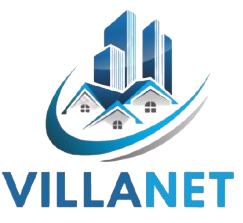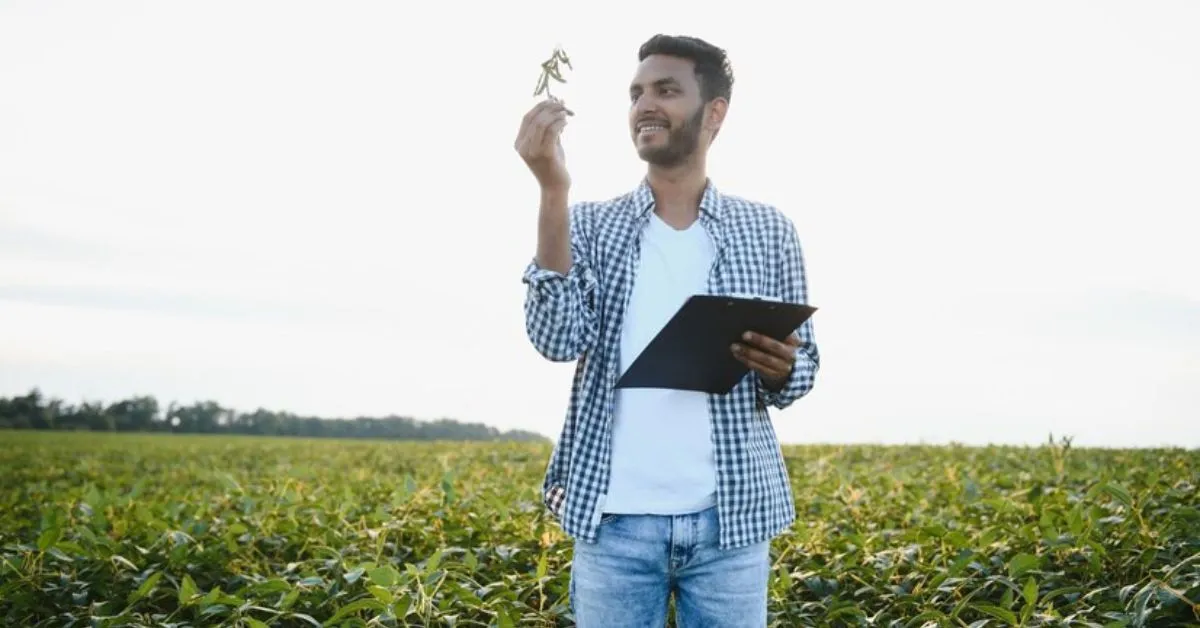UNPRG – Ingeniero Agrónomo Escurra CLSO: A Comprehensive Guide to Agronomy and Sustainable Agriculture
unprg – ingeniero agrónomo escurra clso Agronomy plays a pivotal role in ensuring the world’s food security, agricultural productivity, and environmental sustainability. Within this field, Ingeniero Agrónomo Escurra CLSO stands as a prominent figure, contributing significantly to agricultural innovation, education, and research. His work is a cornerstone in understanding sustainable farming practices, and the work of UNPRG (Universidad Nacional Pedro Ruiz Gallo) in shaping future agronomists is highly impactful.
This article will delve into the contributions of Ingeniero Agrónomo Escurra, focusing on his role in agronomy, his educational journey, the significance of his work, and how institutions like UNPRG contribute to the development of agronomists worldwide. We will also explore the intersection of agronomy, sustainability, and education, as well as what the future holds for the agricultural sector.
What is Agronomy?
Defining Agronomy
Agronomy is the branch of agricultural science that deals with the study of crops and the soil environment. It combines plant biology, soil science, climate science, and technology to improve food production, minimize environmental impact, and enhance sustainability. Agronomists play a vital role in researching crop production techniques, soil health, pest control, and climate resilience.
The Importance of Agronomy in Modern Agriculture
In today’s world, the demand for food is higher than ever due to the global population increase. As such, agronomy’s importance cannot be overstated. Agronomists work to develop more efficient, sustainable farming practices that ensure food security while protecting natural resources. These innovations are critical in facing global challenges like climate change, drought, and land degradation.
Ingeniero Agrónomo Escurra: A Leader in Agronomy
Biography of Ingeniero Agrónomo Escurra
Ingeniero Agrónomo Escurra is a highly respected professional in the field of agronomy. His extensive knowledge and work in the agricultural sciences have earned him a reputation as a leader in his field. Escurra’s work has revolved around enhancing agricultural productivity through research, as well as emphasizing sustainable farming practices.
Having earned his degree in Agronomy, Escurra’s work focuses on bridging the gap between research and practical application. He specializes in crop management, soil health, and the development of eco-friendly farming solutions. His contributions to the agricultural sector have earned him accolades and recognition within professional circles.
Contributions to Sustainable Agriculture
Escurra’s dedication to sustainable farming has made him a key figure in promoting environmentally-friendly agricultural practices. Through his work, Escurra has helped implement strategies that reduce the carbon footprint of agriculture while boosting crop yields. His research in water management, organic farming, and soil conservation are key components of his legacy.
In addition to his research, Escurra is also known for mentoring younger generations of agronomists, ensuring that sustainable practices are passed down to future professionals in the field.
The Role of UNPRG (Universidad Nacional Pedro Ruiz Gallo) in Agronomy
Overview of UNPRG
UNPRG, located in Lambayeque, Peru, is one of the leading institutions in agricultural education. The university has long been dedicated to providing high-quality education in agronomy and related fields. With a strong emphasis on sustainability and research, UNPRG ensures that students are prepared to meet the challenges of modern agriculture.
The university’s agronomy department is known for its academic rigor, state-of-the-art facilities, and deep commitment to both theoretical knowledge and practical experience. Students at UNPRG are equipped with the skills needed to navigate the complexities of modern agriculture, from crop science to environmental conservation.
Agronomy Programs at UNPRG
The UNPRG Agronomy Program offers students a comprehensive education in various aspects of agronomy. These include soil science, crop management, pest control, agroecology, and sustainable farming techniques. The program integrates hands-on experiences with cutting-edge research, ensuring that students receive both theoretical and practical knowledge.
Students also have the opportunity to engage in agricultural research projects, allowing them to contribute to the scientific advancement of agronomy. Additionally, partnerships with local farms and agricultural organizations provide real-world exposure to the challenges faced by the farming community.
Sustainable Agriculture: Key Concepts and Practices
The Need for Sustainability in Agriculture
Sustainability in agriculture is essential to meet the needs of a growing population without compromising the ability of future generations to do the same. Sustainable farming practices aim to increase crop yields while minimizing negative impacts on the environment. This includes reducing the use of chemical fertilizers and pesticides, conserving water resources, and improving soil health.
Sustainable Practices Promoted by Ingeniero Agrónomo Escurra
Escurra’s work emphasizes the importance of eco-friendly farming techniques. Some of the key sustainable practices he promotes include:
- Organic Farming: Using natural methods to enhance soil fertility and control pests, reducing reliance on chemical inputs.
- Agroforestry: Integrating trees and shrubs into agricultural landscapes to improve biodiversity, soil health, and water retention.
- Water Management: Using efficient irrigation techniques to reduce water wastage and protect local water supplies.
- Conservation Tillage: Minimizing soil disturbance to preserve soil structure and health.
Escurra’s commitment to these methods has helped many farmers adopt more sustainable practices, thereby increasing productivity while reducing environmental impact.
The Future of Agronomy and Agriculture
Technological Innovations in Agronomy
The future of agronomy is deeply intertwined with technology. Advances in genetic engineering, precision agriculture, and artificial intelligence are reshaping how we approach crop production. UNPRG and professionals like Ingeniero Agrónomo Escurra are at the forefront of these innovations, integrating new technologies to optimize farming methods.
- Precision Agriculture: This technology uses GPS, sensors, and data analytics to optimize field-level management. It allows farmers to apply inputs more efficiently, reduce costs, and improve crop yields.
- Genetic Modification: Crops are being genetically engineered to withstand harsh conditions like drought, pests, and diseases, ensuring food security even in the face of climate change.
- Artificial Intelligence (AI): AI is being used to predict crop outcomes, detect diseases early, and improve decision-making in the field.
These technologies, alongside sustainable practices, will ensure the continued growth of agriculture while protecting the environment.
Educational Initiatives and Research
As the agricultural sector evolves, institutions like UNPRG will continue to play a crucial role in preparing the next generation of agronomists. Research at the university will focus on developing more resilient crops, innovative farming methods, and sustainable practices to address the challenges of climate change and food security.
By fostering collaboration between universities, industry, and government agencies, the agricultural sector can tackle pressing issues such as soil degradation, water scarcity, and climate change. The work of agronomists like Escurra ensures that these challenges are met with scientifically-backed solutions that benefit both farmers and the environment.
Conclusion
Agronomy is at the heart of addressing the challenges facing modern agriculture. Through the work of professionals like Ingeniero Agrónomo Escurra, the agricultural community is becoming more attuned to the importance of sustainable practices that ensure long-term food security and environmental health. Institutions like UNPRG play a key role in shaping the future of agriculture by educating and empowering future agronomists.
Escurra’s work, particularly in the areas of sustainable farming, crop management, and soil health, has proven instrumental in enhancing agricultural practices both locally and globally. His legacy lives on in the next generation of agronomists, who are being trained to carry forward his vision of a sustainable, resilient, and efficient agricultural future.
Through continued research, education, and collaboration, we can look forward to a more sustainable agricultural sector, capable of feeding the growing global population while preserving the planet’s resources for future generations.
This comprehensive article provides a clear understanding of Ingeniero Agrónomo Escurra’s impact on sustainable agriculture and the role of UNPRG in shaping future agronomists. With a user-friendly tone and in-depth exploration of the topic, it aims to inform and inspire those interested in pursuing a career in agronomy or learning more about sustainable farming practices.
FAQS
What is agronomy?
Agronomy is the science of crop production and soil management aimed at improving food production and sustainability.
Who is Ingeniero Agrónomo Escurra?
Ingeniero Agrónomo Escurra is a prominent agronomist known for his contributions to sustainable farming and agricultural research.
What does UNPRG offer in agronomy?
UNPRG offers comprehensive agronomy programs focused on sustainable farming practices and hands-on research.
Why is sustainability important in agriculture?
Sustainability in agriculture ensures that farming practices can meet current needs without compromising future generations’ ability to produce food.
What are some sustainable farming practices?
Sustainable farming practices include organic farming, water management, agroforestry, and conservation tillage.







